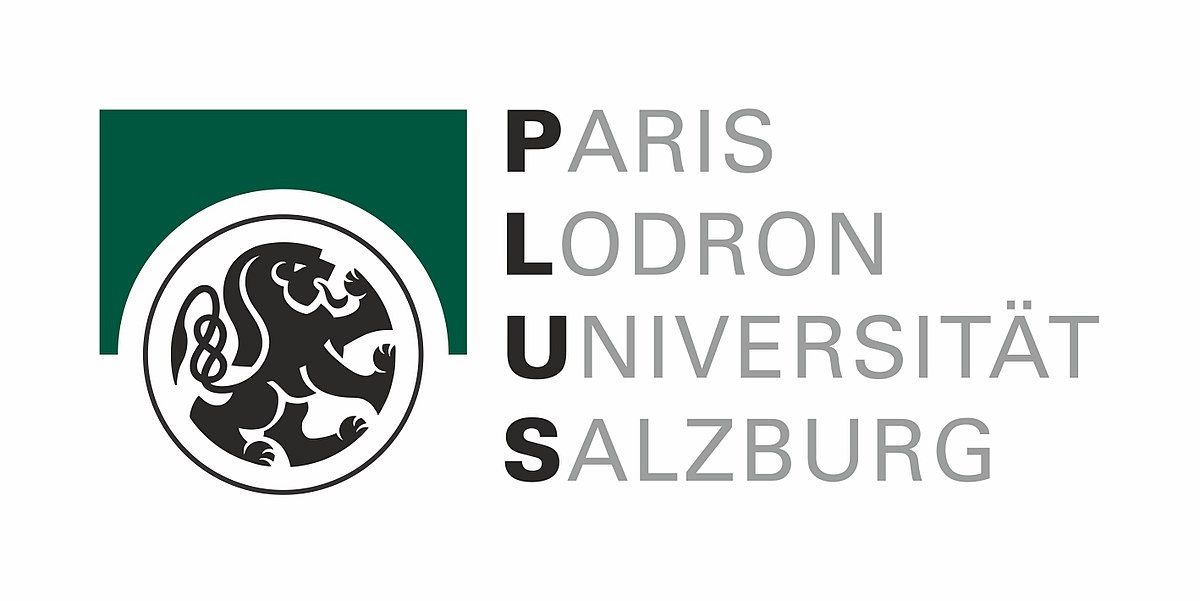Trust And Visuality: Everyday digital practices (TRAVIS)
The ongoing crisis of trust in specific institutions (government, media, healthcare system) is often blamed for many of the social, cultural and political problems European societies are currently facing. While many researchers are exploring the relations between trust, technology and misinformation, we need to understand how trust is practiced in our everyday, ordinary lives and media practices.
Trust And Visuality: Everyday digital practices (TRAVIS) is a research project that will look at how people experience, build and express trust in news and social media images related to wellbeing and health.
start 1.11.2022
end 31.12.2025
We chose this focus for three reasons: First, humans experience visual information as more trustworthy than other communicative modes. Second, while trust continues to be crucial for social life, it is significantly complicated by our increasing reliance on online communication, where we have to infer our communication partners and their intentions from their on screen representations and algorithmic manipulation. And finally, the pandemic showed us that visual digital representations related to our individual (step counts, recovery selfies) and collective (visualizations of infection rates) experiences of health are increasingly central to our lives. This makes everyday, visual social media communication of health news and personal health content the perfect case study to understand trust.
Thus, TRAVIS investigates how and why people trust some visuals over others, and how content creators and professionals create trustworthiness with and through digital visual content. Our research is undertaken in four different cultural contexts - Austria, Estonia, Finland and the UK - allowing us to combine perspectives from Nordic, Eastern-European/Post-Soviet, Anglo-Saxon and Germanic cultures, each with their own traditions and norms of trust as well as significant differences in how much institutions are trusted.
To ensure the social impact of our research findings, TRAVIS cooperates with various local initiatives. Together we will increase awareness, knowledge and skills about trustworthy, bias-free and socially responsible digital visuals, visualization practices and the underlying mechanisms and social implications of the crisis of trust affecting Europeans’ lives.
 |
 |
 |
 |
Team
Project Lead and PI Estonia
Katrin Tiidenberg is Professor of Participatory Culture at the Baltic Film, Media and Arts School of Tallinn University, Estonia. She is the author of multiple books on social media, digital visual cultures and digital research methods, including, most recently “Tumblr” (2021,co-authored by Natalie Ann Hendry and Crystal Abidin) and “Sex and Social Media” (2020, co-authored by Emily van der Nagel), “Selfies, why we love (and hate) them.” As well as the co-editor of award-winning “Making sense of the Datafied World: a Methodological Guide”(2020, in Estonian, co-edited with Anu Masso and Andra Siibak) and “Metaphors of Internet: Ways of Being in the Age of Ubiquity” (2020, co-edited with Annette Markham). She is currently wrapping up a research project on platformization of sexuality and on the role of the internet in young people’s political participation and starting a project one on visual digital trust (TRAVIS). Her research interests span social media, digital cultures, networked visuality, internet governance and self-care.
PI UK
Gillian Rose is Professor of Human Geography at the University of Oxford and a Fellow of the British Academy and of the Academy of Social Sciences; she has been a Visiting Professor at the Universities of Pretoria and Karlstad. She is the author of Feminism and Geography (Polity, 1993), Doing Family Photography (Ashgate, 2010) and Visual Methodologies (Sage, fifth edition 2022). Edited collections include Women Writing Space: Colonial and Postcolonial Geographies (with Alison Blunt, Guilford,1994), Visuality/Materiality (with Divya Tolia-Kelly, Ashgate, 2012) and most recently, Seeing the City Digitally, available open access from Amsterdam University Press here. She has also written many papers on images, spatialities, visualising technologies and ways of seeing in urban, domestic and archival spaces. Her current research interests focus on contemporary digital visual culture and how cities are seen and experienced.
Find out more about her work here and follow her on Twitter @ProfGillian. She is also trying to restart her blog here.
PI Austria
Maria Schreiber is a Post-Doc Researcher at the Department of Communications at the University of Salzburg, Austria. Her work focuses on visual and digital media cultures and qualitative methods. Previously, she worked at the Department of Sociology at the University of Vienna, investigating ‘Visual Biographies in a networked lifeworld’. Maria was a visiting researcher at the University of Potsdam’s center on ‘Visuality and Making Visible’ and at the Digital Ethnography Research Center at RMIT in Melbourne. She held a scholarship of the Austrian Academy of Science as part of the DOC-team ‘Pictorial Practices’. She is part of the interdisciplinary DFG-network ‘Transformative Visuality’.
PI Finland
Asko Lehmuskallio is a scholar working at the intersection between visual studies, social sciences and media theory. He is particularly interested in the interrelations between bodies, networked cameras and the social practices within which these are enmeshed, particularly as they relate to images and knowledge. Lehmuskallio serves as Professor of Visual Studies at Tampere University, Finland and directs the Visual Studies Lab. After his PhD, he has held several positions abroad, including as Visiting Scholar at UC Berkeley, US, and the Sussex Humanities Lab, UK, as Rudolf Arnheim Guest Professor at Humboldt - Universität zu Berlin and as Visiting Professor at the London School of Economics and
Political Sciences. Lehmuskallio has published widely, including work on non-professional camera use, interpersonal boundary regulation in digital environments, the history of the passport, photography and migration, and the notion of the camera.
Publications and more about his work and Twitter @verlook
Post-doc researcher UK
Josie Hamper is a postdoctoral Research Associate at the University of Oxford. Her research focuses on the embodied experiences, knowledge and practices that emerge at the intersection between new technology, health and medicine. Her previous work, which was funded by the ESRC and Wellcome Trust, has explored how digital visualisations (including fertility monitoring data and prenatal imagery) travel through people’s social worlds. She has published in Transactions of the Institute of British Geographers, Social Science & Medicine and Culture, Health & Sexuality, among other journals.
Post-doc researcher Austria
Andrea Schaffař works as a Post-Doc Researcher: She is part of the Austrian TRAVIS team at the Department of Communications at the University of Salzburg. Her second work affiliation is with the University of Applied Arts Vienna at the department for Cross-Disciplinary Strategies. Her work focuses on the use of qualitative methods and methodologies at the intersections of different disciplines. Complimenting this her research and teaching areas include media studies and media pedagogy, urban studies and housing, and social dynamics. She published recently ‘Digital dynamics and change’ in GIO, about Grounded Theory in Analyzing Group Interactions and is currently working on a book chapter for ‘Wohnen erforschen’ (Researching housing) about group discussions and how research findings can be used within design processes of housing projects. Additionally, she works as a trainer and consultant in the field of organizational development and group dynamics.
Post-doc researcher Finland
Jenni Niemelä-Nyrhinen is a Postdoctoral Research Fellow at Research Centre COMET located at the Communication Sciences Unit at Tampere University in Finland. She is a member of the Visual Studies Lab. Her research interests include philosophy of photography, social uses of photography, visual journalism, and politics of aesthetics. In past few years she has written articles on such issues as phatic photographic communication, photography as play, epistemologies of the photographic image and aesthetic practices in the climate crisis. She currently works in the project Trust and Visuality: Everyday Digital Practices (TRAVIS).
Post-doc researcher Estonia
Jaana Davidjants is a doctoral candidate in cultural studies at Tallinn University. She completed her MA degree in political science at Goldsmiths, University of London. Her research concerns visual social media-based storytelling of war. Her interests include social media activism, visual communication as well as trauma & memory studies. She teaches humanitarian communication at the Estonian Academy of Arts: a subject she approaches as a wide range of practices related to the representation of vulnerability.
Pre-doc researcher Austria
Marius Liedtke is a doctoral candidate at the Department of Communications at the University of Salzburg. He holds a Masters degree in Socio-Cultural Studies from European University Viadrina in Frankfurt (Oder). He is co-author of the study „Learning from Influencers: YouTube & Co. as playgrounds for left-wing politics and educational work” (2019, in German) and part of the research project „STICK & FLOW: A Critical Framework for investigating bot engagement on social media”. Marius research interests include digital cultures, political activism and (audio-)visual communication.
Pre-doc researcher Finland
Tobias Schmid is a researcher at the Faculty of Information Technology and Communication Sciences at Tampere University. He holds a Masters degree in Art and Visual History from Humboldt-Universität zu Berlin. Tobias has two years of project based work experience in political consulting with stations at polisphere, Bernstein Group and PRLX. He is part of the Image/Knowledge research project led by Asko Lehmuskallio. His research focuses on the visual transformation of health on platform services and mobile devices.
Post-doc researcher Finland
Matti Kortesoja works as a postdoctoral researcher at the Faculty of Information Technology and Communication Sciences at Tampere University. He holds a Doctor of Social Sciences degree. His research interests include social and cultural theory, politics, and media. His latest publications include a book titled “Power of Articulation: Imagery of Social Structure and Social Change” (Palgrave Macmillan, 2023), and peer-reviewed articles in the European Journal of Communication and Tutkimus & kritiikki. He has worked in three Academy-of-Finland-funded research projects, such as Banal Surveillance: Unravelling the Causes of and Remedies for the Privacy Paradox (BANSUR with Asko Lehmuskallio). Matti is the most recent member of the research project TRAVIS.
Selected publications and more information
Research assistant
Patience Gombe holds an MA degree in Screen Media and Innovation from Tallinn University, her thesis was on trust-building strategies used by malicious actors in the cryptocurrency sphere on social media. She is a Junior Researcher at the Baltic Film, Media and Arts School (BFM) at Tallinn University and her research interests include television studies, audience behaviours, trust in social media, visuality and culture. Patience has previously worked at Tallinn University as a research assistant on projects related to media contradictions and the public value of cultural data, as well as participatory culture. She has also worked as a teaching assistant for a course on Social Media and Society. Upon completing her bachelor’s degree in Dramatic Arts from the University of the Witwatersrand in Johannesburg, South Africa, she spent over a decade, working in different fields of media including television production, television broadcast, and digital content marketing in Africa, the Middle East, Europe, and the USA.
Cooperation Partners
- Barbara Buchegger, DI M Ed., Austrian Institute for applied telecommunications/ saferinternet.at initiative
- Elina Heikka, Museum Director, The Finnish Museum of Photography
- Lea Larin, Acting Editor of SIRP, SIRP
- Karmen Joller, Dr. MD, Estonian Society of Family Doctors
- David Wright, UK Safer Internet Centre Director, SWGfL, South West Grid for Learning Trust Ltd
Advisory Board
Sarah Banet-Weiser is Professor at the University of Pennsylvania’s Annenberg School for Communication and Research Professor of Communication at the University of Southern California’s Annenberg School for Communication and Journalism. She is the founding director of the Center for Collaborative Communication at the Annenberg Schools (C3). Her teaching and research interests include gender in the media, identity, citizenship, and cultural politics, consumer culture and popular media, race and the media, and intersectional feminism. She has authored or edited eight books, including the award-winning Authentic™: The Politics of Ambivalence in a Brand Culture (NYU Press, 2012) and Empowered: Popular Feminism and Popular Misogyny (Duke, 2018), and dozens of peer-reviewed articles, book chapters, and essays. Her latest book, co-authored with Kathryn Higgins, is titled Believability: Sexual Violence, Media and the Politics of Doubt (Polity Press, 2023).
Anthony McCosker is Professor of Media and Communication at Swinburne University, where he is the Node Director and a Chief Investigator in the ARC Centre of Excellence for Automated Decision Making + Society (ADM+S). His research addresses digital inclusion and inequality in the adoption of new technology, with a focus on data capability and learning with AI. He works with public sector, health care and non-profit organisations to ensure equitable and innovative technology adoption. His latest co-authored books are Everyday Data Cultures (2022, Polity), Data for Social Good: Non-Profit Sector Data Projects (forthcoming, 2023, Palgrave) and Automating Vision: The Social Impact of the New Camera Consciousness (2020, Routledge).
Jill Walker Rettberg is a Professor of Digital Culture at the University of Bergen in Norway. She is Co-Director of the new Center for Digital Narrative at the University of Bergen, and also leads an ERC project on Machine Vision. Jill combines literary and visual analysis with ethnographic and digital methods in her research, and has studied social media, digital art and digital narratives over the years. Her books include a scholarly anthology on World of Warcraft (MIT Press 2008), Blogging (Polity Press 2008/2014) and Seeing Ourselves Through Technology (Palgrave 2014). She has a new book coming out in 2023 titled Machine Vision: How Algorithms are Changing the Way We See the World.
Stefania is Senior Lecturer in Digital Sociology at the University of Sheffield. Her research - funded by the British Academy (2012), the Wellcome Trust (2013; 2016), the ESRC (2018) and the Leverhulme Trust (2022) - centres on digital participatory cultures. While investigating social media practices, she has developed a keen interest in the role of digital platforms in self-care, patient advocacy, health public debate, and health activism. Her past and current research on rare diseases and cancer has developed in interaction with advocacy and patient organisations. Stefania has written extensively on social media discourses around health conditions and is author of Digital Media and Participatory Cultures of Health and Illness (Routledge, 2021).
Resources
Academic publications
Tiidenberg, K., Markham, A. N., Schreiber, M., & Schaffar, A. (2025). Patterns of surprise and Ambivalence: Studying social media visuality by way of aggregated autoethnography. FQS. https://doi.org/10.17169/
Lehmuskallio, A., & Haara, P. (2025). The photojournalistic paradox. In Routledge eBooks (pp. 24–34). https://doi.org/10.
Hamper, J., Niemelä-Nyrhinen, J., Davidjants, J., Rose, G., Tiidenberg, K., & Lehmuskallio, A. (2025). Learning from the mess: What happens in social media elicitation interviews. Qualitative Inquiry. https://doi.org/10.
Liedtke, M., & Schreiber, M. (2025). “Im Internet kann sich jeder Doktor nennen”: Vertrauenspraktiken im Umgang mit visuellen Darstellungen medizinischer Expertise. In W. Reißmann, R. Venema, U. Autenrieth, & N. Brüggen (Hrsg.), Visual Literacy: Bildkompetenzen in den digitalen Medien (S. 332). Herbert von Halem Verlag. https://doi.org/10.
Lehmuskallio, A., & Niemelä-Nyrhinen, J. (2024). Kuvallinen viestintä osana sosiaalista vuorovaikutusta. Duodecim, 140(24), 2068–2073. https://www.
Schaffar, A. (2023). Viele Köche verderben den Brei? Qualitatives Datenmanagement anhand des Projektes TRAVIS. MedienJournal, 47(3), 59–74. https://doi.org/10.
Books
Favero, P. S., & Lehmuskallio, A. (2025). Visual Studies: A Social Scientific Perspective. Taylor & Francis. https://www-
Other
Hamper, J. (2025, April 24). Pregnancy apps and the digital child before birth - Digital Child. Digital Child. https://digitalchild.
Schreiber, M. (2024, February 25). Unfiltered.Cravings [Video]. Intsagram. https://www.
Davidjants, J., & Tiidenberg, K. (2025, February 7). Ühismeedia ja usaldus ehk Kas oma silm on kuningas? Sirp. https://www.sirp.ee/
Tiidenberg, K: Ühtekuuluvus, vastandumine ja usaldus, mis soodustab ja õõnestab heaolutunnet? (2024, October 16). Riigikogu teaduskonverents "Elujõuline Eesti - tähendus ja valikud" [Video]. YouTube. https://www.youtube.
The Cluster F Theory Podcast interview with Katrin Tiidenberg. (2024, May 05). Apple Podcasts. https://podcasts.
Liedtke, M. (2024, February 6). ADHD-Self-Diagnosis on Social Media. PressReader. https://www.
Schreiber, M. (2024, February, 05). Neue Studie: Schönheitsideale im Internet. Saferinternet.at. https://www.
Thy Nguyen, D., Schaffar, A., & Torres, E. (2023, October 23). Trust and Promise – Relationship Development between Unfamiliar Cultural Institutions and New Audiences. Fonds Darstellende Kuntse. https://www.fonds-
Funding
Project TRAVIS is supported by the Estonian Research Council, Academy of Finland, Austrian Science Fund, FWF,
